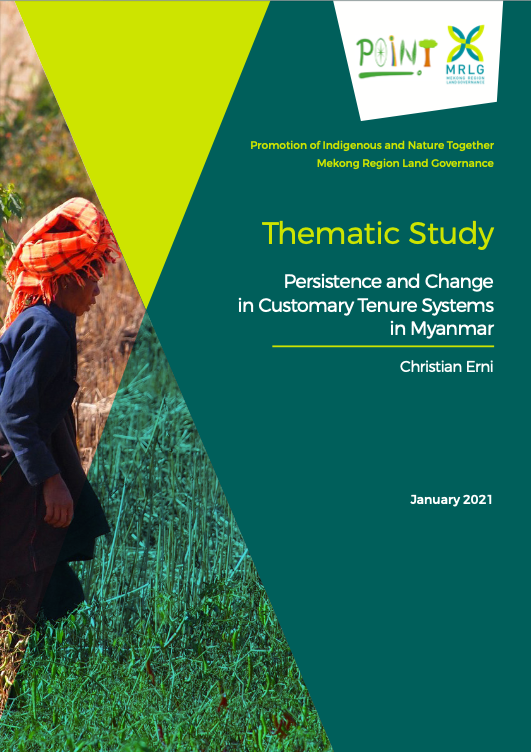Resource information
Based on a broad review of the existing documentation, the study describes the diversity of customary tenure systems in various regions of Myanmar; it looks at what they have in common and how they differ. It investigates the processes that affect or weaken the community jurisdiction over their lands and resources. It is intended as a resource for policymakers who are looking at recognizing and protecting the customary rights of rural communities.
Throughout Myanmar, most communities have managed their lands and natural resources since generations according to their own rules with limited external influence. These rules and institutions have often been referred to as customary tenure systems. Still today, many communities remain highly dependent for their livelihood on resources from land managed customarily and for which they do not have formal rights. Particularly in the uplands and border areas of the country. This study presents a framework to help understand what makes these systems “customary”, highlights important similarities and differences through nine case studies. It assesses how these systems differ according to the primary livelihood resources, the cultural and socio-political organization of the communities, and how they evolve in face of population growth, migration, market integration, state interference and conflict. The study attempts to place specific customary tenure systems within a spectrum from complete to partial. In conclusion, it raises the need to protect and strengthen community jurisdiction as a primary recommendation for the effective recognition of customary tenure systems for local communities.

